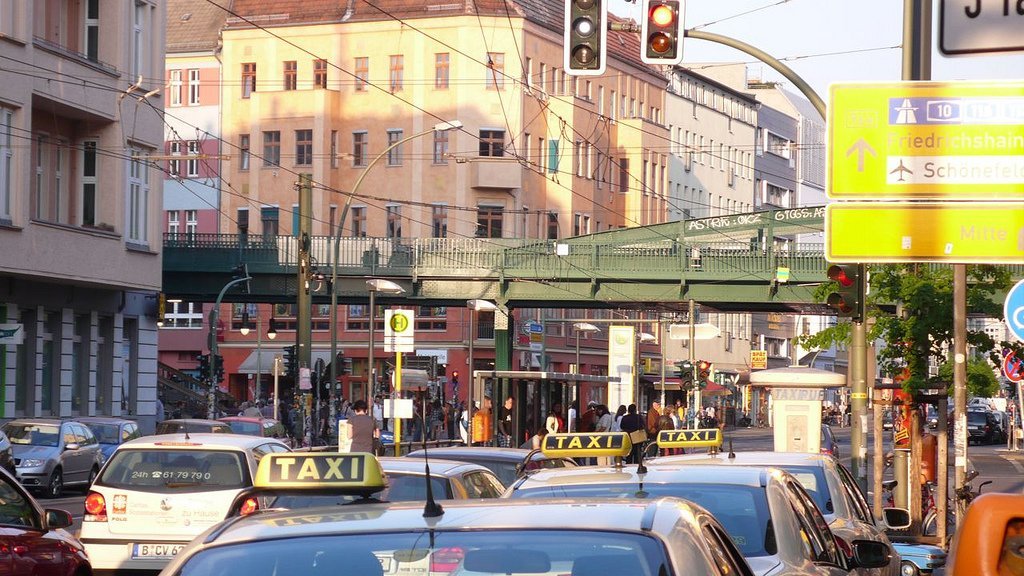Five million Syrians — one quarter of whom are from Aleppo — have been forced to live abroad since 2011. To Aleppians like me, places from Amman to Oslo now have more of home than we are aware of. This never felt truer to me than when I was in Berlin last April to participate in an important conference about rebuilding Aleppo organized by the Association of the Friends of the Old City of Aleppo.
Getting from my Aleppian friend Hassan Oneizan’s place in Steglitz to the conference venue at the Association of German Architects in downtown Berlin involved one bus and two trains. As a newbie, I missed my first bus. Although the next one was coming in ten minutes, I couldn’t afford to be late. The fastest alternative was now to take a bus and a long taxi ride. Even though it was going to be quite expensive, I thought I would definitely get there on time. As a bonus, the fare would trickle through a country that has paid so much for refugees, including fellow Syrians.
I got off my bus at a taxi rank. I now had to figure out how to explain to my 60-something-year-old taxi driver where I needed to go so he could get me there on time. He spoke a bit of English and was using a tablet fixed in front of him and a smartphone next to him to navigate. That reminded me of what my Aleppian friend Malek Kassar once mentioned about his 70-year-old landlord in Sweden doing all transactions from collecting rent to paying bills using his phone. My taxi driver thought he knew the location. But, because I didn’t give him the postal code, he wanted to confirm that he was taking me to the right place.
He seemed to struggle with the two gadgets. When we stopped at traffic lights, which to my frustration happened a lot, he would pick up the smartphone, unlock the keypad, go to maps, and then start to type the street name. Invariably, before he could find the location, he had to put his phone back next to him because the light had turned green. I started to grow anxious that I would miss the opening remarks of the conference. As with many things in my expat life, I started to imagine how my ride would have been if it had been in Aleppo.
No driver in Aleppo relied on GPS for navigation. For security reasons, phone producers were requested by the Syrian authorities to disable GPS features before they could export gadgets to Syria. And because Syrian public life and administration relied heavily on informality, no reliable paper or online maps of Aleppo existed anyway. House numbers didn’t exist, except in theory, and formal street names often didn’t match with locations in the mental map of the Aleppians. To explain your destination, you had to mention the nearest landmarks: “Coming from the Espresso Street, turn right after the mosque. Then it’s the second on the left.” With a seat belt only pseudo-fastened, as if doing it properly would suppress the adrenaline emanating in response to the time challenge, my driver in Aleppo would maneuver through cars, constantly shifting between lanes, and get me to my destination in very good time. But then again, even in Aleppo, there were slow taxi drivers too.
We finally got to the street, and it was only two minutes past the conference start time. Now which building was it? Ah, by the entrance there was a small sign that read “Aleppo” with an arrow.
“We should follow the sign that reads ‘Aleppo,’” I said to him.
“Aleppo!” he exclaimed.
“Yes,” I replied.
“Aleppo!” he said again.
“Yes!”
“Are you from Aleppo?”
“Yes, but please I don’t want to be even more late.”
“ليش ما حكيت من قبل! Why didn’t say before? I am from Aleppo, too. And don’t worry – look; people are just going in. You’re not late.”
 The Aleppo Project
The Aleppo Project